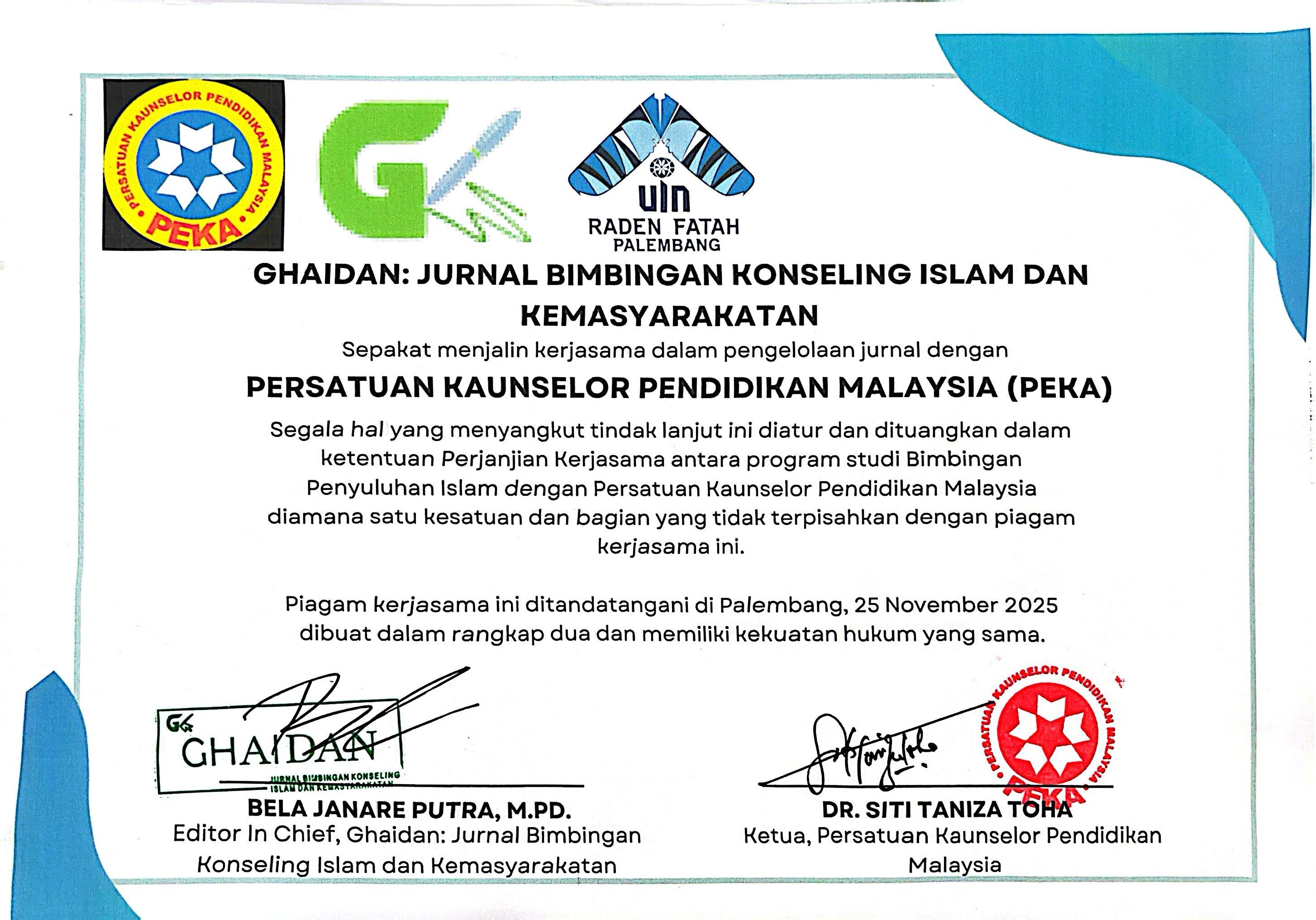Pengembangan Kualitas Kompetensi Kognitif Siswa Melalui Assesment Profiling Gaya Belajar Menurut Bobbi DePorter dan Mike Hernacki
DOI:
https://doi.org/10.19109/eb81we46Abstract
Students have various learning styles, based on this, teachers must work hard in providing lessons. Sometimes teachers complain because the lesson material provided does not seem easy for students to accept. Therefore, as a result, there needs to be countermeasures to overcome this problem, namely by recognizing the learning style of each student. Learning style profiling assessments analyze how students like and understand learning material. To ensure that students' learning styles can develop as expected, teaching strategies must be adapted to various student learning styles. Therefore, by using a learning style profiling assessment, teachers must know the learning styles desired by students because by knowing them, teachers will be able to understand and have strategies that are considered most appropriate for delivering learning in the classroom. This research was conducted at Al-Ihsan Middle School, Jakarta. The research method used is the Four D (4-D) development model which is reduced to 3-D, namely define, design and develop. The population of this research was 30 students in class VIII of Al-Ihsan Middle School, Jakarta. The results of this research illustrate that class VIII students at Al-Ihsan Middle School, Jakarta, have a variety of learning styles, namely 34.50% visual, 35.17% auditory and 30.33% kinesthetic. If teachers can recognize and understand students' learning style tendencies, then it will be very valuable in knowing the extent to which students have achieved cognitive competence.
References
Angkat, N. A., Novianti, S., & Ramadani, W. (2023). Variasi Gaya Belajar Siswa Pada Pembelajaran Bahasa Indonesia Di Kelas V SD. Pema (Jurnal Pendidikan Dan Pengabdian Kepada Masyarakat), 2(1), 47–53. https://doi.org/10.56832/pema.v2i1.211
Arumsari, D. M. (2023). Analisis Gaya Belajar Siswa Terhadap Hasil Belajar Pada Mata Pelajaran Ipas. LEARNING : Jurnal Inovasi Penelitian Pendidikan Dan Pembelajaran, 3(1), 111–119. https://doi.org/10.51878/learning.v3i1.2118
Ayu, P. S., Marhaeni, A., & Adnyana, B. P. (2018). Pengembangan Instrumen Asesmen Keterampilan Belajar Dan Berinovasi Pada Mata Pelajaran Ipa Sd. PENDASI: Jurnal Pendidikan Dasar Indonesia, 2(2), 90–100. https://doi.org/10.23887/jpdi.v2i2.2696
Egamberdieva, T. A., & Saydullaeva, A. R. (2022). The Importance of Axiological Approach In Forming The Cognitive Competence of Future Teachers. Journal of Positive School Psychology, 6(10), 2009-2015 DOI:10.1016/j.sbspro.2015.04.377
Erman S.Ar. (2018). Model Belajar Dan Pembelajaran Berorientasi Kompetensi Siswa. Educare (Jurnal Pendidikan Dan Budaya), 5(2), 1–35.
Ermiyanto, E., B.S, I. A., & Ilyas, A. (2023). Asesmen Diagnostik Gaya Belajar Siswa Kelas VII di SMPN 4 Padang Panjang. Manazhim, 5(1), 166–177. DOI:10.36088/manazhim.v5i1.2845
Ha, N. T. T. (2021). Effects of Learning Style on Students Achievement: Experimental Research. Linguistics and culture review, 5(S3), 329-339. DOI:10.21744/lingcure.v5nS3.1515
Hachem, M., Gorgun, G., Chu, M. W., & Bulut, O. (2022). Social and Emotional Variables as Predictors of Students Perceived Cognitive Competence and Academic Performance. Canadian Journal of School Psyhology, 37(4), 362-384. https://doi.org/10.1177/082957352211184
Ilhami, T., & Ristiono, R. (2021). Hubungan Gaya Belajar dan Kompetensi Kognitif Peserta Didik dalam Pembelajaran Biologi. Journal for Lesson and Learning Studies, 4(3), 315–322. DOI:10.23887/jlls.v4i3.37325
Kassymova, G. K., Kenzhaliyev, O. B., Kosherbayeva, A. N., Triyono, B. M., & Ilmaliyev, Zh. B. (2020). E Learning Dilemma And Cognitive Competence. Talent Development & Excellence, 12(2), 3689-3704.
Khalidiyah, T., & Hamid, A. (2023). Implementasi Instrumen Gaya Belajar Bobbi DePorter di STAI YPBWI Surabaya. Jurnal Konseling Gusjigang, 9(1), 91–98. DOI: https://doi.org/10.24176/jkg.v9i1.7363
Kean, L. C., Edwards, M., & Smith, M. D. (2020). Use of Learning Style Frameworks in Health Science Education. American Journal of Pharmaceutical Education, 84(7), 919-927.
Lutfiyah, N. H., & Fahyni, E. F. (2023). Peran Konselor Bimbingan Konseling Dalam Pengenalan Gaya Belajar Siswa di Era New Normal. Teraputik: Jurnal Bimbingan Dan Konseling, 7(1), 68–76. DOI: https://doi.org/10.26539/teraputik.711725
Lyle, K. B., Young, A. S., Heyden, R. J., & McDaniel, M. A. (2023). Matching learning style to instructional format penalizes learning. Computers and Education Open, 5, 100143. https://doi.org/10.1016/j.caeo.2023.100143
Misliawati. (2021). Hubungan Gaya Belajar Dengan Hasil Belajar Siswa Mata Pelajaran Pendidikan Islam Di Kelas VII SMPN 1 Pelepat Muara Bungo Tahun Pelajaran 2017/2018. Jurnal Inovasi Pendidikan Menengah, 1(3), 226–232.
Muslim, F., Ekawarna, Ramalia, A., Wirayudha, R. P., & Chen. D. (2022). Learning Intensity and Visual Learning Style on Learning Outcomes. Journal of Educational Research and Evaluation,6(2), 385-396. DOI: https://doi.org/10.23887/jere.v6i2.40312
Rafiska, R., & Susanti, R. (2023). Analisis Profil Gaya Belajar Peserta Didik Sebagai Data Pembelajaran Berdiferensiasi Di Kelas Xii Sma Negeri 1 Palembang. Research and Development Journal of Education, 9(1), 474-482. DOI:10.47134/jtp.v1i2.74
Rahmawati, N. (2021). Pengembangan Perangkat Pembelajaran Model Problem Based Learning untuk Meningkatkan Hasil Belajar pada Subtema Lingkungan Tempat Tinggalku Kelas IV Sekolah Dasar. Jurnal Pendidikan Tambusai, 5(1), 242–246.
Rasheed, F., & Wahid. A. (2021). Learning Style detection in E-learning Systems Using Machine Learning Techniques. Expert System With Applications, 174, 114774.
Rumondor, P., & Maslukiyah, N. (2019). Upaya Guru PAI dalam Meningkatkan Kompetensi Kognitif dan Kepribadian Siswa Di MTs Negeri 1 Bongkudai. Edureliga: Jurnal Pendidikan Agama Islam, 3(1), 41–58.
Shamsuddin, N., & Kaur, J. (2020). Students’ learning style and its effect on blended learning, does it matter? International Journal of Evaluation and Research in Education, 9(1), 195–202.
Sitika, A. J., Rida, J., Lestari, D., Putri, K. V., Agung, L., Azahra, M., Ulviyah, N., Sutejo, Y., Singaperbangsa, U., Abstract, K., & Sutejo, Y. (2023). Pengembangan Kurikulum Berbasis Kompetensi Untuk Meningkatkan Kualitas Pendidikan, A. Jurnal Ilmiah Wahana Pendidikan, Oktober, 9(19), 1–8.
Sugianto, A., Qomariah, M. S., & Alisha, A. N. (2023). Peran Guru Bimbingan dan Konseling Dalam Analisis Profil Gaya Belajar Siswa Sebagai Need Assessment Pembelajaran Berdiferensiasi. G-Couns: Jurnal Bimbingan Dan Konseling, 7(3), 520–531. DOI: https://doi.org/10.31316/gcouns.v7i03.4696
Wulandari, D. S., & Rusmana, I. M. (2020). Pengaruh Gaya Belajar Dan Kecerdasan Logika Matematika Terhadap Prestasi Belajar Matematika. Jurnal Lebesgue : Jurnal Ilmiah Pendidikan Matematika, Matematika Dan Statistika, 1(2), 76–81. DOI:10.46306/lb.v1i2.18
Xing, B. (2023). A Review of Research on Learning Style. Open Journal of Modern Linguistics, 13(02), 263–275. DOI:10.4236/ojml.2023.132016
Yani, D., Muhanal, S., & Mashfufah, A. (2023). Implementasi Assemen Diagnostic Untuk Menentukan Profil Gaya Belajar Siswa Dalam Pembelajaran Diferensiasi Di Sekolah Dasar. Jurnal Inovasi Dan Teknologi Pendidikan JURINOTEP, 1(3), 241–360.





